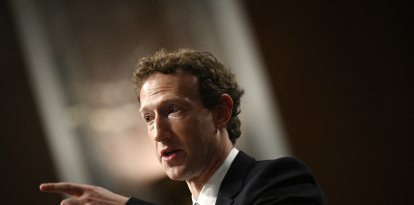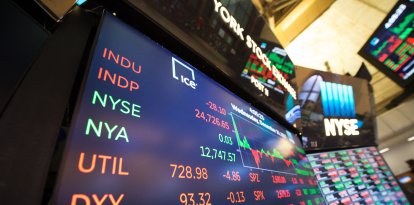30 years of George Soros
It has been three decades to the day since the left's favorite speculator broke the Bank of England and made $1 billion.

George Soros / World Economic Forum.
George Soros has become one of the most influential personalities of recent decades. The path to influence has been speculation, which has not earned him the animosity of the left. On the contrary, the investor has become one of the most powerful forces in global progressivism. The investment that made him a billionaire just turned 30 years old.
Breaking the Bank of England, the world's oldest regulatory body, and earning $1 billion in a single day is not within the reach of just anyone. The protagonist of this story is George Soros, businessman and promoter of progressive causes. It happened on the so-called Black Wednesday; September 16, 1992. He was not alone as he coordinated with several hedge funds.
European Exchange Rate Mechanism
In 1979, the European Exchange Rate Mechanism was created, which was the gateway leading to the euro. Margaret Thatcher decided to remove the pound from this mechanism for more than just ideological reasons, linked more to economic independence, than economic ones. However, Thatcher failed to control inflation. Her replacement, John Mayor, took the reins of the situation, at the cost of sending the country into a recession.
The standard policy at any time of recession is to lower interest rates. However, monetary policy at the time sought to maintain the value of the pound, so the Bank of England did two things between 1990 and 1992: maintain high interest rates and conduct an extensive sterling buying program. The exchange rate policy was also conditioned by the fact that democratic Germany had joined with communist Germany in a process that produced a lot of inflation. As a result, the Bundesbank pursued a policy of high rates.
Either Hold the Pound or Avoid Recession
In short, the UK had a choice: either maintain the high interest rate policy at the cost of a recession, or lower them at the cost of allowing the pound to depreciate. Many investors understood the nature of this dilemma. George Soros was one of them. Many investors, especially hedge funds, understood that the government would not hold out, and began to take bearish positions on the pound in the summer of 1992: they bought currencies and sold pounds. By the end of August, Soros Fund had a sold position valued at $1.5 billion.
The outcome was not yet written. If Germany lowered interest rates, it would ease the pressure of other currencies, and that especially affected the pound. Pressure was mounting for the large country to lower rates, but all that was achieved was a commitment from Governor Helmut Schlesinger that he would not raise them in the short term.
Pending Germany
The British finance minister, Norman Lamont, sold this meager commitment as a great victory for British diplomacy. There was just one problem with that: it left the Bundesbank looking like an institution that had surrendered its independence, all to serve the interests of another country.
Schlesinger was not willing to let the situation stand. On September 8, 1992, he held a press conference in which he said two things. One, that there were no guarantees about the Bundesbank's future interest rate decision. In other words, there was nothing to report to the press. And two, that he did not trust the European semi-fixed rate mechanism. Those words dropped like a bombshell.
The Pound Does not Hold
Soros sold his stakes in the Italian lira, believing that it was also in a compromised situation, and added bearish positions on the pound. The Bundesbank rectified on the 14th, and announced that they would lower interest rates. However, the pound did not appreciate, which was interpreted by several hedge funds that were speculating against the pound as a sign of weakness.
The purchasing power of pounds, to defend their value, depleted. John Mayor had no choice but to raise interest rates by two points; a tremendous increase. The pound did not react. The time had come when the British government had lost that war. The Fed raised rates another three points to 15%, but the national currency still failed to react. Finally, on Black Wednesday, September 16, it plummeted and made a well-known investor, George Soros, into the figure he is today.

























